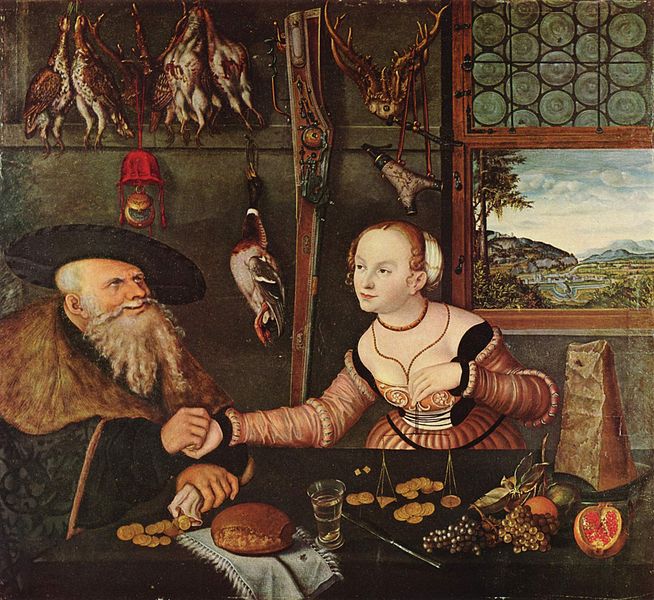

Ruler of bhava-7 = Shukra
Vimshottari Dasha - Rashi - Gochara - Bhava - Graha - Ratna - Nakshatra - Amsha - Karaka - Varga - Bala
7th Bhava = 7th-from -any-lagna = 7th-from-Chandra
the learning classroom of yuvatibhava-7 = ruled by Professor Bright Beautiful Bhrigu
Vimshottari Periods of the Rulers of Bhava-1-to-12
The Yoke, the Trust, the Covenant, the Oath
The Promise
The Judiciary
brokerage
deal-making
advocacy
middleman
intercessors
mediators
negotiation
OM shum Shukra ya namah
OM dram drim draum sah Shukra ya namah
Learning Pathway 7
contracts & justice
Bhava-7
शुक्रगृह śukra-gṛha Shukra-griha = a house of Shukra
जाया jāyā = woman, wife
कलत्र kalatra = status of being a wife, consort
स्मर smara = erotic love, sexual union, amorous memory
अस्त asta = death, cessation, setting sun, vanish, perish
युवति yuvati
जामित्र jāmitra
मार्ग mārga
चित्तोत्थ cittottha
In regard to dear ones, friends or enemies,
the high placed, or neutrals, or hateful relatives,
and in regard to the good or even the corrupt –
the one whose clarity of mind remains the same,
stands apart
~~ Bhagavad Gītā 6.9
"Without counsel, plans fail,
but with many advisers they succeed."
Book of Proverbs =Mishlei Shlomo, -- 15:22 (ESV )
" Hoarding and expenditure,
elevation and degradation,
meeting and parting,
life and death,
all are akin."
~~ Ramayana Ayodhya Kanda, Sarga-105.16
QUOTATION from ~~ B.V. Raman, Three Hundred Important Combinations
" According to the dictum Kendra-Thatibalassuhuhu ,
planets disposed in kendra add great strength to the horoscope.
The four angles in a horoscope are like the four walls of a building."
QUOTATION
WRT bhava-7, from ~~ www.goravani.com Das
" This house stands for love and marriage, husband or wife,
public enemies, law suits; partnership in trade, travel,
happiness, children from a second marriage,
son-in-law, relatives,
ways and means and merchandise"

Die Bezahlung = The Payment
painted by Lucas Cranach the Elder, 1532
Regional Names = 7th bhava
- Kalatra sthāna
- Kalathra sthānam
- Bharya
- Punya
- Marga
- Jamitra
- Jaya
- Kaama
- Madana
- Patni
- Smara
- Dyuna
Yuvati = the yoke. Agents of 7 root the essence of contractual agreements and alliance for mutual wealth and pleasure.
relationships, contractual agreements, bargains, marriage
" Know from the seventh house about cohabitation, wife or husband,
teeth or navel, diseases in and around it."
Madhya Parashari, sarga-9, shloka-7

Wheat Horses by Trey Ratcliff
QUOTATION from Tenzing Gyatso, tsong-ka-pa, and Jeffrey Hopkins
-
Deity Yoga in Action and Performance Tantra, p. 42
Union of Bliss
" It is necessary to alternate stabilising meditation and analytical meditation...
by merely cultivating non-conceptuality and non-analysis it is impossible to enter into the yoga of signlessness.
-
Even after emptiness has been realised, powerful and repeated analysis is needed.
-
Merely to set one's mind on the meaning of emptiness is the mode of cultivating calm abiding observing emptiness
-
in order to cultivate special insight it is necessary to analyse again and again.
These two modes of meditation -- stabilising and analytical -- are alternated
-
until analysis itself induces even greater stablisation,
-
at which point stabilisation and wisdom are of equal strength,
this being a union of calm abiding and special insight .
In Performance as well as in Action Tantra the meditative stabilisation which is a union of calm abiding and special insight is used to gain feats for the sake of aiding sentient beings 4and accumulating merit quickly."
Vocabulary for Yuvati Bhava
QUOTATION from V. S. Apte,
Practical Sanskrit-English Dictionary , p. 1316
yuti
- mixing, union
- junction, connection
- being endowed with
- gaining possession of
- youth, young adult,
- achieved puberty
- strong, healthy
- excellent, good
- young woman
Vocabulary for Yuvati Bhava
-
V. S. Apte, Practical Sanskrit-English Dictionary , p. 545
Kalatram
- A wife
- The female of an animal
- hip and loins
- Any royal citadel
- The seventh house
Topics of bhava-7
-
yoke, yoga, vow
-
covenant, convention, pact, compact, contract, conditional agreements
-
league, colleagues
-
agreement, alliance
-
relationship-building
-
faith, fiduciary, fidelity, federal, federation, affidavit, confidant
-
deal-making, advocacy, legal representation
-
peers, pairing, parity, fairness, match, equity
-
polarity, polarizing, position-opposition, pendulum, undulation, alternation, bookends, range, course, swing,
-
value, worth, weight
-
final satisfaction: the balm of death
-
truth, trust, truce, treaty, troth, betrothal
-
promise, pledge, oath, swear, answer, decide, decisions
-
Balance, Harmony, relationship, mutual Regard, design
-
Marriage, partnerships: first marriage, business partnerships,
-
paired organs, visible genitals,
-
law courts, legal settlements, lawyers, advocacy, representation
-
7-relationships, contracts, advocacy, fairness, legal judgments, legal appeals, equity, diplomacy, bargaining, recitprocity, mutuality, partners
-
Yuvati Bhava: relationship to other Bhava
Profile of Yuvati = the yoke
7 th amsha
bhava-7 counted from the Earthen-body birthing indriya-lagna
7th-from-Shukra lagna
7th from Shani lagna (enduring contractual obligations)
Vimshottari Periods of the Rulers of Bhava-1-to-12
In addition it would be foolhardy to jump to conclusions about marriage, business partnership, or legal agreements without surveying:
-
yuvati-pati and ruler of 7th from Chandra
-
conditions in 7th-from-7th = Tanu Bhava
-
graha residing in Tula (Libra)
-
Shukra
-
radix yuvati-pati within navamsha
-
navamsha 7th bhava
-
ruler of 7th-navamsha within the D-1
-
4th bhava within D-4 varga
-
Occasionally 7th from Surya, especially if Surya occupies Tula
- yuvati-pati does not provide timing of marriage ceremony. Yuvati-sthāna may show material-social characteristics of the alliance.
Denizens of Bhava-7
attorneys, representatives, peers, business partners, negotiators, facilitators, mediators, advisers, advocates,
other counterweights, others who embody an opposite value
these functionaries are all members of bhava-7 = bargaining and adjudication
in reading the nativity, these agents have deal-making identity
7th from indriya-lagna = yuvati bhava vs 7th from Chandra
7th from the Earthen-body birthing indriya-lagna = yuvati bhava
-
subconscious personal assumptions and known cultural expectations WRT
-
the social-material model for balanced marriage; external behaviors of the life-alliance
vs
-
subconscious personal assumptions and known cultural expectations WRT
-
the psycho-emotional model for balanced marriage interactions; internal behaviors of the life-alliance
yuvati-pati-7 in Lagna vs. Lagnesha in bhava-7
yuvati-pati-7 resides = indriya-lagna =
Contractual partnership (7) defines and influences the social identity-personality (1).
-
personality integrity conforms to partnership requirements and the needs of the partner. The Learner may be socially identified with the partners.
-
Nature of conformance judged by characteristics of yuvati-pati-7 .
-
E.g., if yuvati-pati-7 = Budha, the Learner mainly talks about their marriage commitments (follow-through would depend on other graha in lagna). yuvati-pati-7 in a rashi of Shani = conservative traditional spouse and marriage practices. yuvati-pati-7 in a rashi of Guru = liberal and expansive character of the spouse, and native conforms to/expands with that character. yuvati-pati-7 = Shukra, tendency toward sensualism. In Kanya, polarizing catalysis via women partners define the identity. Etc.
Lagnesha in bhava-7 = Personality controls the contractual relationships.
One sees the partnership as an extension of the vital self.
Native is a born negotiator, contract-maker, and crafter of agreements. Finding balance of mutual interest is the core component of one's personal self-image. Because the partner is an extension of the Self, what benefits the Learner must be good for the partner.
One imposes one's own social profile onto marriage and partnership operations. May not conform to the conventional model of marriage practices, but will normalize one's own eccentric views by asserting that the spouse shares fully in the partnership process. Spouse = likely to go along with one's own stronger personality, especially if the graha is favorable.
Nature of personalized expression of agreement-crafting is to be judged by characteristics of lagnesha-1 . Some examples:
-
If lagnesha-1 = Shukra, the Learner expresses a feminized taste, full of sweetness and sensual indulgence. If in Mesha, celebration of friendly competition and sexuality as the ultimate in-body experience.
-
If lagnesha-1 = Guru, liberal and permissive. If in Kanya, prefers demure and youthful spouses. If lagnesha-1 = Surya, what's mine is mine and what's yours is mine too. (Only possible for Simha indriya-lagna, usually uncomfortable .)
-
If lagnesha-1 = Shani, the Learner is a traditionalist in marriage and the spouse may be chosen for their ability to reflect a conventional, law-abiding social profile.
Sanjay Rath, Dharma and Marriage
https://srath.coam
" ...the 11th sign from the 9th house is the 7th house which shows gains/increase of Dharma and the 12th sign from the 9th house in the 8th house which shows loss/decrease of Dharma.
-
Thus, marriage indicates an increase of Dharma while widowhood symbolizes a destruction of Dharma. ...
-
in Hindu wedding the son-in-law is regarded as Vishnu, as his coming to the family has led to an increase in Dharma."
Marriage , cohabitation, conjugal Life
Presuming that the marriage indicators are comfortable, marriage and core partnerships are predisposed to assist success in life - with a 75% positive / 25% negative ratio.
Bhava-7 is a very influential location. Generally bhava-7 is the second most powerful bhava indicating not only interpersonal contractual and advising relationships (7th-from-1st) but also career and public reputation (10th-from-10th)
Yuvati bhava displays the blueprint for the social reputation of marriage (10th-from-10th reputation, respect). Bhava-7 may reveal some of the profile elements of the character of the first spouse; however other profile elements are lodged in 7th-from Chandra and also in 1-7 navamsha. Bhava-7 traditionally describes the condition of the external genitals. Most information about private bedroom practices is however gained from bhava-12 (enclosures) and from the dara-pada A-12.
Yuvati bhava especially signifies the social-material conditions of first marriage, but i ts blueprint also continues to affect the social-material structure of all contracts in life therefore 7 also contributes to the structure of subsequent marriages.
bhava-7 = the energy and function of the " external genitals" such as penis and clitoris whereas traditionally the hidden terrain of bhava-8 is considered to described the " internal genitals" such as prostate and ovaries; also also bhava-8 described the realm of the anus.
Sexual energy interacts with the dynamic of relationship in all but the most rarified marriages. Sexual pleasuring tastes may change and develop slightly during the maturation of a relationship, but in essence they do not change too much throughout the lifetime. What may improve however is the understanding of human sexuality and the skillful partner's ability to manage the sexual realms.
Also due to the seventh angle representing contracts and agreements throughout the lifetime, the psychological profile of yuvati bhava continues to apply to all subsequent unions. Bhava-7 characteristics describe the very basic dynamic of relating. For example, what is the allocation and balance of the terms of the contract, how much time alone, time for sexual relaxation. Basic physical body definitions and natural bodily urges are obtained via Tanu Bhava and Chandra-lagna. Bhava-7 helps to indicate how the partner interacts with one's own body.
Professor Mangala directs the primal sexual instincts.
Balance and Polarity-7
Not all adults have sexual partners; yet, all adults have a punya bhava. Everyone has one significant partnership, even if that partnership is with a deity or an idea. Yuvati rules the Opposite polarity to the self- whatever that opposite pole is. The opposite pole can arrive in many different packages. To truly understand sexuality, it is necessarily to understand energy polarity. Yuvati or the marriage house governs all energy exchanges - energy coming in, energy going out - between spiritual beings and their psychic projections.

Permission granted for pgysical dematerialization of the mineral-foram
The second radical bhava and the seventh radical bhava are marana-karaka "maraka" bhava. Their planetary rulers initiate the departure of spirit out of the container of the fleshly body.
Vimshottari periods of dhanapati-2 and yuvati-pati-7 as counted from the Earthen-body birthing indriya-lagna or counted from Chandra lagna can show Timing of death for the Learner .
2nd-from-7th can indicate the timing of the grieved the bio-decease of first spouse or end of first marriage or divorce)
2nd-from-4th or 7th-from-matristhāna can indicate time grieved the bio-decease of mother
However Conditions of dematerialization are indicated by bhava-8 and its residents. Graha and characteristics of bhava-8 may reveal features of the end-of-life conditions such as environment, presenting cause, those in attendance.
Conditions of dematerialization for first spouse = dhana bhava 8th-from-7th.
Conditions of dematerialization for spouse-2 = dharma sthāna 8th-from-2nd.
According to BPHS 11-14:
if Rahu occupies yuvati bhava
Mangala/Rahu period may develop some dangerous experiential qualities
" Danger from snakes, wounds, destruction of cattle, danger from animals, diseases, due to imbalance of bile and wind, imprisonment etc. will be the results, if Rahu is in Randhra, or Vyaya, or receives a Drishti from, or is associated with malefics.
-
There will be loss of wealth , if Rahu is in Dhana
-
And great danger of premature death, if he is in Yuvati.
The remedial measure to be adopted to obtain relief from the above evil effects are Naga Puja, offering food to Brahmins and Mrityunjaya Japa. They will help in the prolongation of longevity." [end quote]
Shani drishti to kalatra bhava
Ceteris paribus, Shani's negative aspect to the marriage house, which occur when Shani occupies houses 1, 5, and 10, does not break up marriages. Shani drishti to 7 or 7th from Chandra can over-emphasize duty at the expense of pleasure.
A Shani drishti to 7 may contribute to the alliance feeling loveless, or the marriage partner acting as a task-master, and native feeling full of grief for the loss of greater expectations. Nevertheless, the Shani drishti to 7 does not cause divorce per se.
Shanaidev Bhagavan gives the gift of stamina. Shani occupying bhava-7 contributes survival information. A powerful influence of Shani upon any kendra (1, 4, 7, 10) may provide tremendous endurance.
In lifepartnership, despite a loveless marriage or marriage to a lower, unsuitable or oppressive spouse, the Learner will be inclined to accept pre-incarnationally planned duty and carry on per the wishes of society. And society wishes, in marriage as in all other undertakings, for material stability and safety above all. Shani respects rules and tradition .
randhresha-8 and rogesha-6 located in Yuvati bhava can make marriage miserable via chronic illness or argumentativeness of the spouse (6) or secrecy and hidden dealings (8). randhresha-8 in java sthāna will eventually trigger separation during bhukti of randhresha-8 or dhanapati-2.
-
Unless Shani = randhresha-8 for Mithuna lagna and Karkata indriya-lagna, Shani is not a separation-divorce causer. Just a misery causer...
Q: How can Dzogchen help us in our daily jobs and careers?
-
Dzogchen: The Heart Essence of the Great Perfection
-
translated by Thupten Jinpa and Richard Barron, foreword by Sogyal Rinpoche, edited by Patrick Gaffney
HHDL: In the first place, it is quite difficult to have an experience of Dzogchen.
But once you do have that experience, it can be extremely beneficial in dealing with your day to day life, your job, and your career.
This is because that kind of experience will give you the ability to prevent yourself from being overwhelmed by circumstances, good or bad.
-
You will not fall into extreme states of mind:
-
you will not get over-excited or depressed.
-
Your attitude toward circumstances and events will be as if you were someone observing the mind,
-
without being drawn away by circumstances.
For example, when you see a reflection of a form in a mirror, the reflection appears within the mirror but it is not projected from within. In the same way, when you confront the situations of life, or deal with others, your attitude too will be mirror-like.
Also, when a reflection appears in the mirror, the mirror does not have to go after the object that is reflected: it simply reflects, spontaneously, on the surface. The same with you: since there is no attachment or agitation at having these 'reflections' in your mind, you will feel tremendous ease and relief. You are not preoccupied by what arises in the mind, nor does it cause you any distress.
You are free from conceptuality or any form of objectifying. And so it really does help you, in allowing you to be free from being caught up in the play of emotions like hatred, attachment, and the like.(p.162)
14th Dalai Lama 1935- Policy of Kindness Tenzing Gyatso. (2001).
-
Answers: Discussions with Western Buddhists. José Ignacio Cabezón (Ed.)
" Actually, we Buddhists are supposed to save all sentient beings, but practically speaking, this may be too broad a notion for most people.
In any case, we must at least think in terms of helping all human beings. This is very important.
Even if we cannot think in terms of sentient beings inhabiting different worlds, we should nonetheless think in terms of the human beings on our own planet. To do this is to take a practical approach to the problem-set. It is necessary to help others, not only in our prayers, but in our daily lives.
If we find we cannot help another, the least we can do is to desist from harming them. We must not cheat others or lie to them. We must be honest human beings, sincere human beings.
On a very practical level, such attitudes are things which we need.
Whether one is a believer, areligious person, or not, is another matter. Simply as an inhabitant of the world, as a member of the human family, we need this kind of attitude. It is through such an attitude that real and lasting world peace and harmony can be achieved.
Through harmony, friendship, and respecting one another, we can solve many problem-sets in the right way, without difficulties."
A couple made a deal that whoever died first would come back and inform the other if there was sex after death. Their biggest fear was that there was no after-life at all.
After a long life together, the husband was the first to die.
True to his word, he made the first contact.
" Sue..........Sue"
" Is that you, George?"
" Yes, i've come back like we agreed."
" That's wonderful!? What's it like?"
" Well, iget up in the morning, I have sex. I have breakfast and then it's off to the golf course.
I have sex again, bathe in the warm sun and then have sex a couple of more times.
Then I have lunch (you'd be proud - lots of greens). Another romp around the golf course, then pretty much have sex the rest of the afternoon.
After supper, it's back to golf course again.
Then it's more sex until late at night. I catch some much-needed sleep and then the next day it starts all over again"
" Oh, George, are you in Heaven?"
" No, i'm a rabbit in Kansas!!"
[end quote]



[How Readings Work] = [Sample Sacred Jewels Ratna Recommendation] = [Seva]
 file update =
20-Feb-2026
file update =
20-Feb-2026
[Copyright © 1994-2034 by Barbara Pijan Lama] = [Contact] = [How to Request a Jyotishavidya Reading]
Barbara Pijan Lama Jyotishavidya Vedic Astrology Surya Sun Chandra Moon Mangala Mars Budha Mercury Guru Jupiter Shukra Venus Shani Saturn Rahu Ketu Graha Planets Dasha Timeline Calendar Nakshatra Navamsha Marriage Children Treasury Career Spiritual Wisdom Cycles of re-Death and re-Birth
The information on barbarapijan.com , including all readings and reports, is provided for educational purposes only. Wishing you every happiness and continuing success in studies!
" And now my friends,
all that is true, all that is noble,
all that is just and pure,
all that is loveable and gracious,
whatever is excellent and admirable -
fill all your thoughts with these things."
~~ Paul of Tarsus, Epistle to the Philippians 4:8
